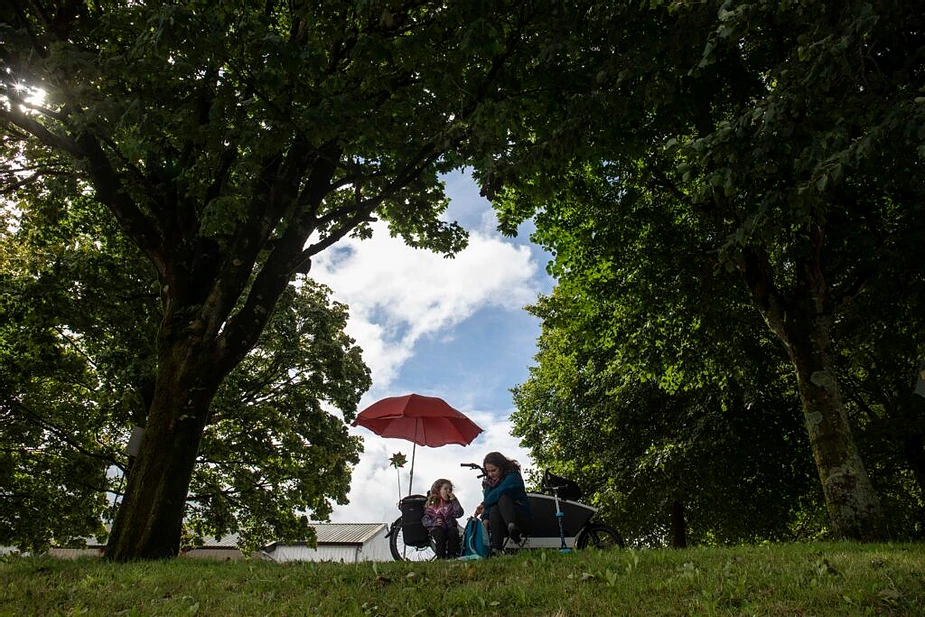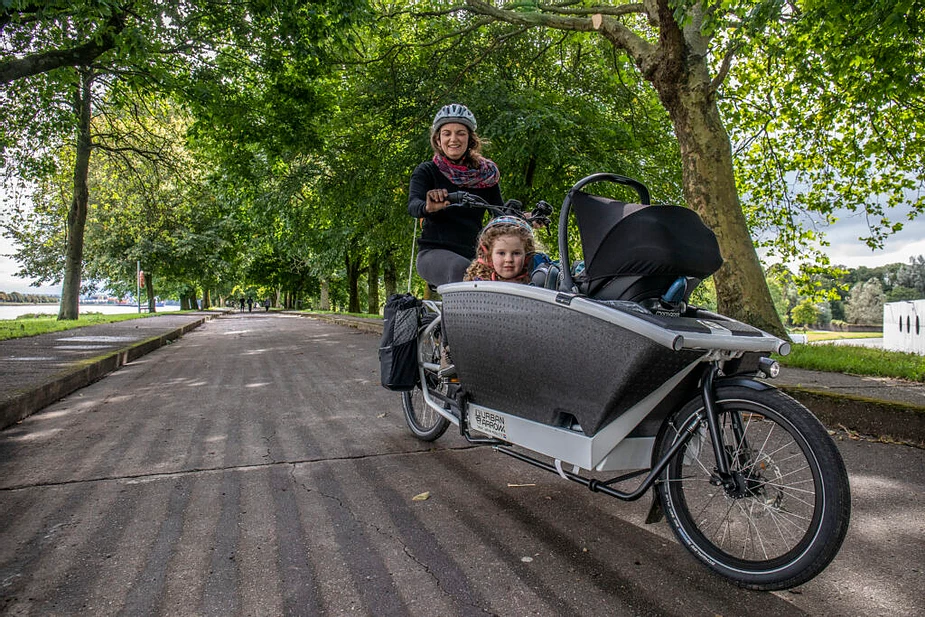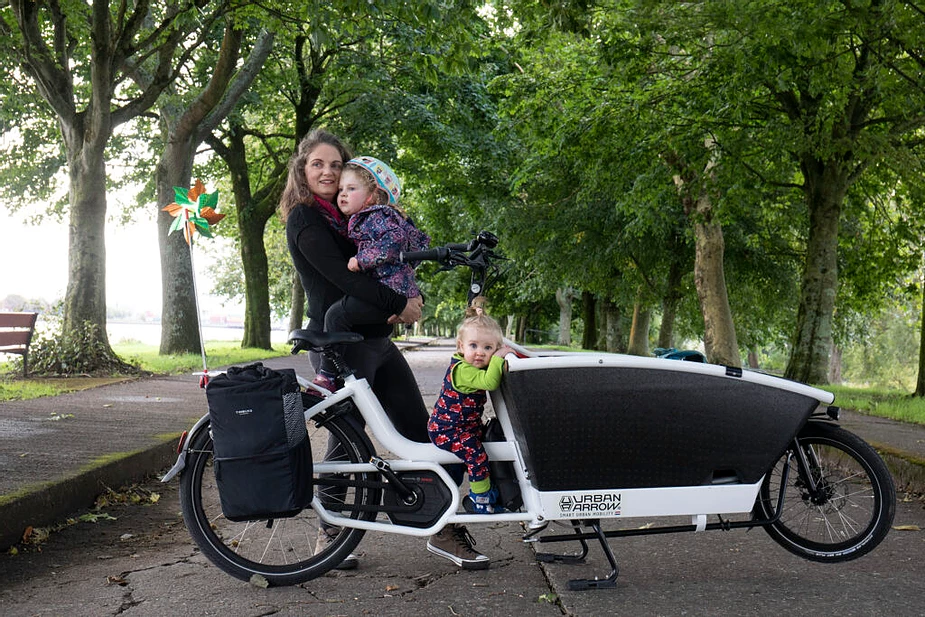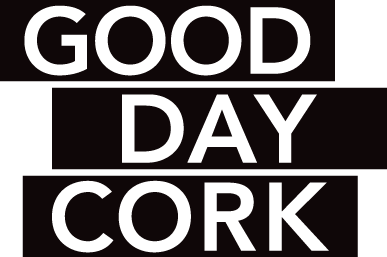Orla Burke, is a Cork-based community activist and a mum to two little girls. Orla writes a letter to her younger self.
Dear Self,
I love story. I love everything about it. I was one of those kids reading years ahead of my age. I do improvisation with an amazing bunch of people, The Bold Ensemble, where we get up on stage and make stories up on the spot. I’m such a story nerd that I read books on story structure, on mythical stories. I love to listen to other people’s stories: pull up a chair and let’s get to know each other.
One of the things that comes up in my story structure books is the concept of “the inciting incident”. The event that sets everything in motion, that sparks the beginning of hero’s journey. And like Elsa hearing the voice singing from the woods, you must start on your quest to find your true north. Have you had your inciting incident yet? What was it?
For me it was attending a lecture in UCC by the writer Kaite O’Reilly where she mentioned the concept of the Social Model of Disability.
I won’t do it justice here, but the basic idea is that disabled people are not broken and in need of fixing, it’s society’s structures that keep us from participating. I had spent so much of my life feeling ashamed, that I couldn’t just fix myself to fit in better.
Why was my body so broken? Surely the answer was just around the corner, some new treatment, that would make me like everyone else.
I remember that night being blown away by the concept. I think about the other people in the room, having a normal experience of attending an interesting lecture by the fabulous artist. Meanwhile, my whole world was turned upside down: imploding on itself. My terms of reference had been wrong all along.
No, I didn’t put my rucksack on and head out onto the tundra straight away. There was a lot to process and come to terms with, but the spark had been ignited. Now I just needed some fuel.
I always maintain that it is so much easier to advocate for others than it is for oneself. Along came my two little girls and at the same time the Friday’s for Future movement started banging a gong. I remember hearing people my age remark “Oh aren’t they great [the young people], they will make such a difference”. But for me it wasn’t enough. I was deeply unsettled by the idea that we lay it all on the shoulders of the younger people, the people with the least amount of power and financial security, and with the most to lose by our inaction on climate change.
In 2019 a bunch of us got together and started Pedestrian Cork. Through it I get to combine two passions I hold dear: accessibility and climate justice. About 20% of our carbon emissions come from transport, 13% from private car usage. Quite shockingly, 50% of car journeys are under 2km, a distance that could be replaced by walking, wheeling, or cycling.
But it’s not a simple fix of just telling people to leave the car at home. Our footpaths are often inadequate or non-existent, we lack resting spots for people who can only walk short distances, many of our junctions are hostile to pedestrians and in need of upgrading.
And this is what we fight for in Pedestrian Cork; an improved “public realm” (the space between the buildings) so that people can more easily make the choice to walk or wheel, instead of just hopping in the car.
Sile Ginnane, one of the founders of “Better Ennis” recently said that “Empathy is the first step in Design Thinking”. I love this. It encapsulates so much of my experience and my conversations with other people. Parents arriving at a coffee morning recounting their near harrowing experience of trying to navigate the blocked footpaths with a buggy, only to say “And I was okay as was just a buggy, what if you needed to use a wheelchair to get around?” Putting yourself in someone else’s shoes, listening to other people’s stories that might be different from your own: these are the foundations of empathy-building.
So, I’ll finish off with a list. (People like lists, don’t they?)
-
Find your inciting incident(s).
Yes, there may be more than 1. Listen to them and let them feed your actions.
-
Anger is the tool not the master.
It’s completely natural to feel angry, especially when faced with injustice, never let anyone make you feel ashamed for feeling anger. But channel it into actions, don’t swim around in it.
-
Go at your own pace and in your own time.
No one will thank you for burning out. Take breaks. Do whatever you have to do to “fill the well”. Craft, sing, dance, bake a cake or garden: do whatever you do that makes you happy.
-
Learn to say “Yes”
So many wonderful things can come from saying yes and adding something
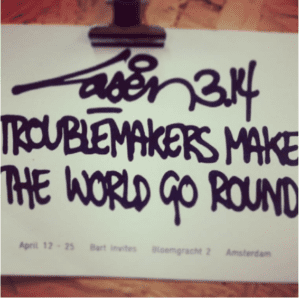
-
Learn to say “No”
Even if you have already said yes, don’t be ashamed to reach out for help or to say it’s all too much and you need a break.
-
Learn to fail
So many of us have far too high standards, it must be perfect, or we don’t even bother. You are enough and it is okay to not to be perfect.
-
Find your story and tell it
Facts and figures don’t change people’s minds: Stories do. Learn to tell your story. Humanise the experience, give it a face. Touch the listener’s heart: the mind will be much more open to changing if you have accessed it via the heart first.
-
Listen
Sometimes those who oppose your ideas most vehemently are just afraid and this fear is manifesting as vitriol. Listen to their story too and give them space to express themselves, you may be surprised to find you share some common ground.
Sincerely,
Self
